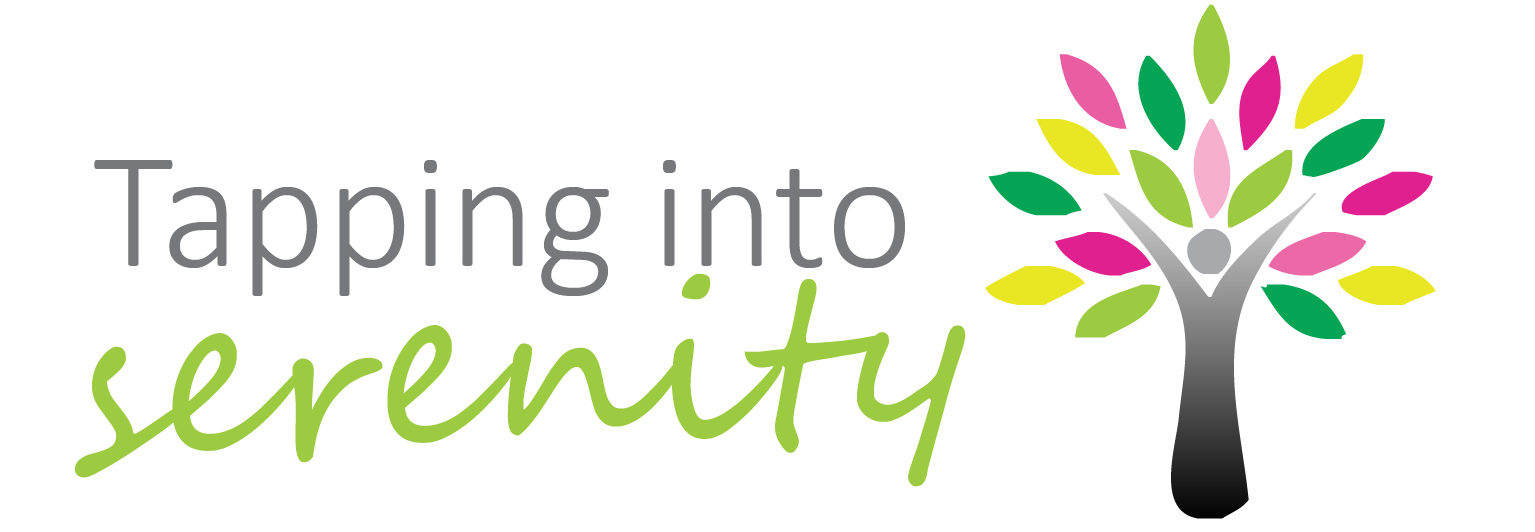Do you struggle to speak up? Feel you can’t speak your truth? You often feel invisible or unimportant to others? You people-please but wish you didn’t? Or you’re exhausted trying to be good enough? You might also hate feeling strong emotions rising up in your body. So you stifle tears or say you’re OK when you aren’t really. These are all signs that you may need to heal from emotionally cold parents.
Understanding why you’re like this
It can be helpful to understand that these are ways of being that got wired into your mind and nervous system early in life. They are not your truth. They often result from being around one or both parents (or caregivers) who didn’t “do emotions” Or they were emotionally unavailable to you.
Alternatively, perhaps they didn’t know how to handle strong emotion in themself and/or you. It’s possible they were never taught emotional awareness by their own parents. Or they were distracted by their own life problems and couldn’t pay enough attention to your basic needs. Whatever happened, they couldn’t teach you how to sit with your emotions when things went wrong and nestle in a comforting hug. Or maybe they overreacted to what you did or said and got angry instead. This might have happened as soon as you were born. Or when you were a toddler or primary school kid. What you really needed was kindness and reassurance.
Some parents would also actively close down any show of emotion by shaming or punishing you. For example, if you cried when you accidentally tripped over and hurt yourself, instead of hugging and reassuring you they might have laughed instead. Perhaps they even punished you or simply ignored you as they felt you’d just caused them yet another problem. Or culturally they’d learned to keep a stiff upper lip and show no emotion.
Beliefs about your self and worth
As a result of such adult reactions to natural needs, a child often subconsciously draws a conclusion about themself. For example, “I must be weak if I hurt myself and need comfort from someone”. And forevermore you want to avoid the awful feeling that comes when a deep need isn’t met. So you learn to shut down future hurts and stifle tears. Maybe you also become overly independent and shun support. And that childhood coping response, to stop you experiencing further hurtful feelings, may well have continued right up to today.
You might also give up trying to do things because you sense you’ll stuff up again. And you turn into a procrastinator. Or you become hypervigilant and perfectionist. You hope if you just try harder this time, they’ll finally give you the recognition and comfort that all children need and deserve.
Anticipation changes behaviour
A tension in your mind and body can also build from the fear of stuffing up again. Plus fear of the awful feeling you anticipate when they react with punishment, humiliation, or ignoring you yet again. That anticipation serves to make you nervous and on edge, which in turn makes you more likely to stuff up again! It becomes a self-fulfilling prophecy which is proven time and again.
Eventually you just have a strong deep belief that you feel is part of your essence: “I’m weak”, “I’m stupid”, “I’m clumsy”, “I’m invisible”, “I’m unlovable”, and so on.
These conclusions – which in EFT we call Core Beliefs or Limiting Beliefs – then shape the way you are as your life unfolds. And they limit your freedom to be who you truly are. Every repeated experience where these play out simply cements that belief more strongly. But remember, it’s only a belief picked up from their reactions, it is not your truth.
Parents teach emotional intelligence
Adults are supposed to teach children how to handle emotions. They’re supposed to comfort hurts, hug you while the pain moves through. Be there as support and speak reassuring words that you’ll be OK, that things will turn out alright in the end. With this, your nervous system can relax and processes what happened in that present moment. Adults are also supposed to reflect to a child that they are inherently worthy of support and comfort, they’re adored and loved. Just because they are themselves, and not because of what they do or don’t do.
You may or may not understand why the adults in your life didn’t or couldn’t do this for you. Most likely they were not in a good place.
They might have been struggling with life, with work, with finances, with relationships. It’s possible they were grappling with unresolved grief or trauma that they weren’t even aware of. Or they never had their emotional needs met so they didn’t know how to do that for you.
But a child often doesn’t see what’s really happening in the adults’ life. A child has to assume the adults are doing the right thing. If something is wrong or the parents react a particular way, the child blames themself. The child tries to make things better in the hope that the parents and the family will finally be happy and give them the safety they need. Experts tell us that that’s the only way the child can continue to live with adults who they need for their survival.
But I had a happy childhood…
Some women know they definitely didn’t have what we might call a Happy Childhood. There was obvious violence, physical abuse and open childhood emotional neglect. Others thought they had a happy childhood. Perhaps it was a seemingly nice middle-class family that looked fine to the outside world.
 But behind closed doors things were not really happy. Perhaps there was verbal abuse or emotional abuse, which is much harder to pin down and recognise than physical abuse. When you’re a kid you can often think that your family dynamics are how the whole world works. You accept things how they are and find ways to cope. But when you look back now, do more personal growth work or talk to others, you realise your childhood was highly stressful much of the time. Perhaps you actually never felt safe.
But behind closed doors things were not really happy. Perhaps there was verbal abuse or emotional abuse, which is much harder to pin down and recognise than physical abuse. When you’re a kid you can often think that your family dynamics are how the whole world works. You accept things how they are and find ways to cope. But when you look back now, do more personal growth work or talk to others, you realise your childhood was highly stressful much of the time. Perhaps you actually never felt safe.
Elaine Aaron PhD writes about the wound with no name. She says this happens to children all around us. And they grow up and are still all around us. They often turn into “highly sensitive people”
Your stress legacy today
As you get older, it’s common that you still haven’t processed these deep, possibly buried, hurts. Perhaps they were a once-off experience but really impactful. For others, having parents who were emotionally unavailable might have been a constant. And often the hurt or the belief is getting triggered behind-the-scenes in your present life at work or home. And you wonder why you feel so on edge and stressed a lot of the time!
Deep down your nervous system has an in-built program to seek safety, care and love so you can survive. That’s why a baby cries, to get these basic survival needs met. And you still intuitively know when you aren’t getting these and that you need them. A part of you also knows that you aren’t really stupid, invisible, or unlovable. Part of you knows that these are beliefs wrongly taken on from how others treated you. That they didn’t reflect your goodness and intrinsic value back to you because they couldn’t or wouldn’t.
Heal from emotionally cold parents
Childhood hurt is a legacy you don’t want to keep. It’s heavy energy that drags you down and can exhaust you. Perhaps you even have a lot of depressed anger (depression) at your parents or other significant adults. You don’t how to deal with it. But the hurt and your feelings about it will stay with you until you acknowledge and release.
You cannot forgive them or truly move on until you process what was hurtful or missing FOR YOU. And if you’re still being treated this way today, by them or other people that remind you of that treatment, then this will constantly add to your daily stress.
If you’re lucky, then some time in adulthood you’ll feel drawn to uncover the roots of the stress or unhappiness from these thoughts about yourself. They’re in the back of your mind and you can’t seem to shake them. If you’re reading this article, chances are you’re already ready to do this! Once you start to recognise and offload these beliefs, the real you and your real unique essence can start to show up more often. I believe that women who become interested in personal or spiritual growth will hit this stage at some point or other.
How EFT Tapping can help
The good news is that with a somatic therapy such as EFT tapping, you can effectively reprogram your own computer – that’s your mind and nervous system! You can release the frozen memories of hurt about what was missing or what was done or said. Your whole system will readjust for the better. We know enough about brain plasticity and the renewal of neural pathways to know that this is now possible.
EFT Tapping can reduce and release your feelings, beliefs and related frozen memories from your mind and your body at the same time. The results are usually long-lasting change for the better. You can bring relief to the way these feelings show up, such as being constantly vigilant, emotionally eating, rarely relaxing, having sleep difficulties, feeling on edge much of the time, doubting your decisions or your worth, maybe even feeling you’re unlovable.
 The research and the experience
The research and the experience
We also have research and thousands of case studies showing that EFT can bring these changes for good. This approach is much easier than trying to change your behaviours and feelings by simply talking about them or using willpower. Perhaps you’ve been trying that for years, telling yourself “I should be different”.
It might take a good number of months of work with EFT to gradually and gently release the unresolved emotions. But isn’t that better than feeling trapped forever with stress and unhappiness? And you only have to make a start, the rest will unfold. Even if your beliefs stem from the earliest years when you couldn’t even speak, the experience was taken on into your body. We have techniques that can release these memories even at this level.
As an adult woman, you can now take back the power that was taken from you. You don’t have to even speak to the person or people who didn’t support you as you needed. EFT is Emotional Freedom Technique – it empowers you to tap through all your hurt about what was done and not done and to set yourself free. That can be messy emotional work to do, but it is so liberating!
 Lareen Newman is a Women’s Coach for Stress Release and Emotional Therapy. Lareen is passionate about helping women to offload their stress and negative emotions through EFT Tapping so they re-energise and experience more joy and peace in their life. She also loves to educate women to better understand their stress, their emotions and how their nervous system works under the stress response. Check out Lareen’s homepage for more information or to join her mailing list, or book a free 20 minute Clarity Conversation with her to discuss if she’s the right person to help you.
Lareen Newman is a Women’s Coach for Stress Release and Emotional Therapy. Lareen is passionate about helping women to offload their stress and negative emotions through EFT Tapping so they re-energise and experience more joy and peace in their life. She also loves to educate women to better understand their stress, their emotions and how their nervous system works under the stress response. Check out Lareen’s homepage for more information or to join her mailing list, or book a free 20 minute Clarity Conversation with her to discuss if she’s the right person to help you.
LINKS – HAPPY READING
Elaine Aaron PhD, The Wound With No Name




 You cannot forgive them or truly move on until you process what was hurtful or missing FOR YOU. And if you’re still being treated this way today, by them or other people that remind you of that treatment, then this will constantly add to your daily stress.
You cannot forgive them or truly move on until you process what was hurtful or missing FOR YOU. And if you’re still being treated this way today, by them or other people that remind you of that treatment, then this will constantly add to your daily stress. The research and the experience
The research and the experience

